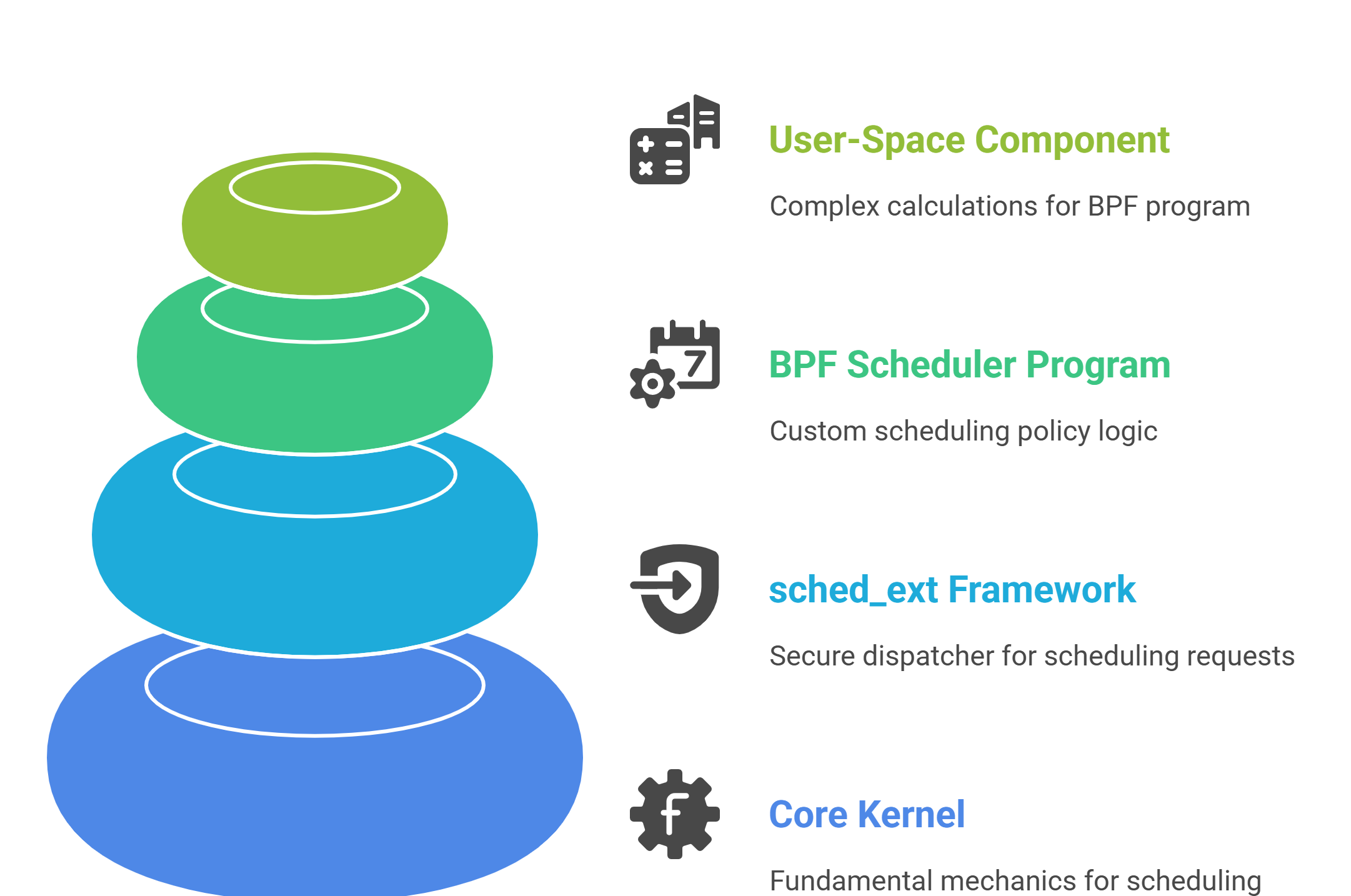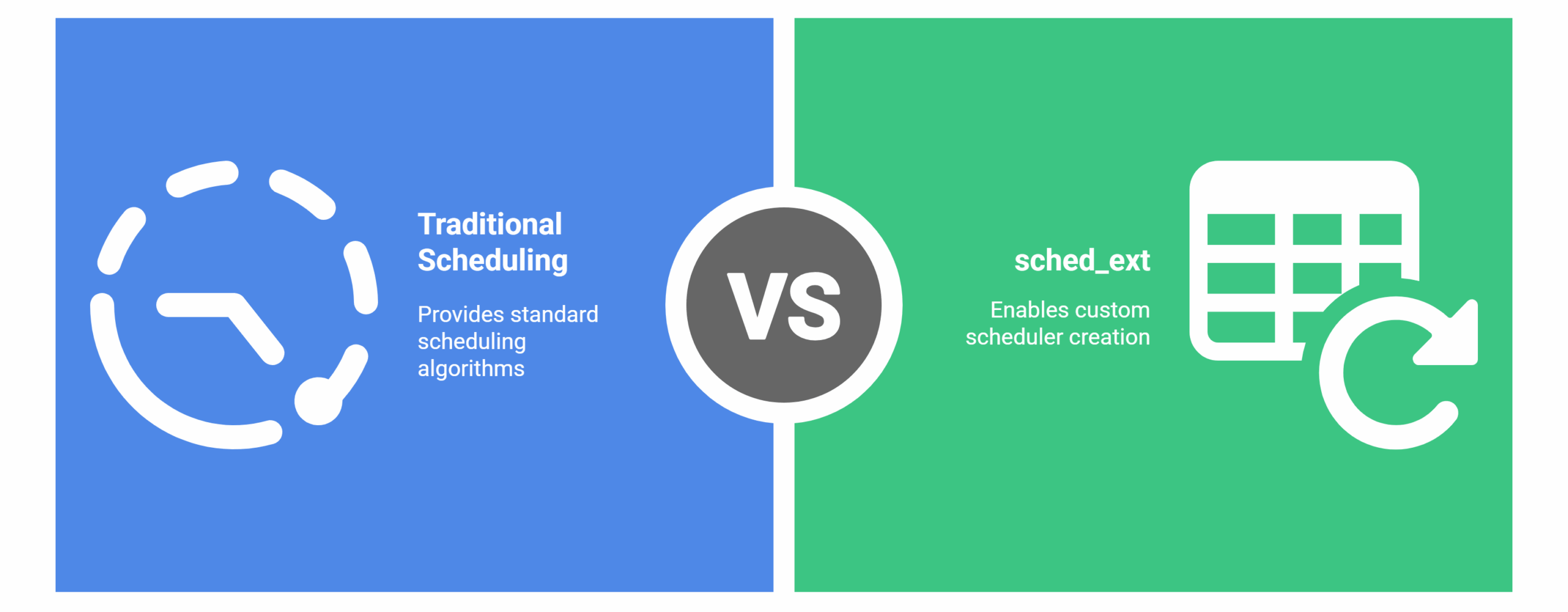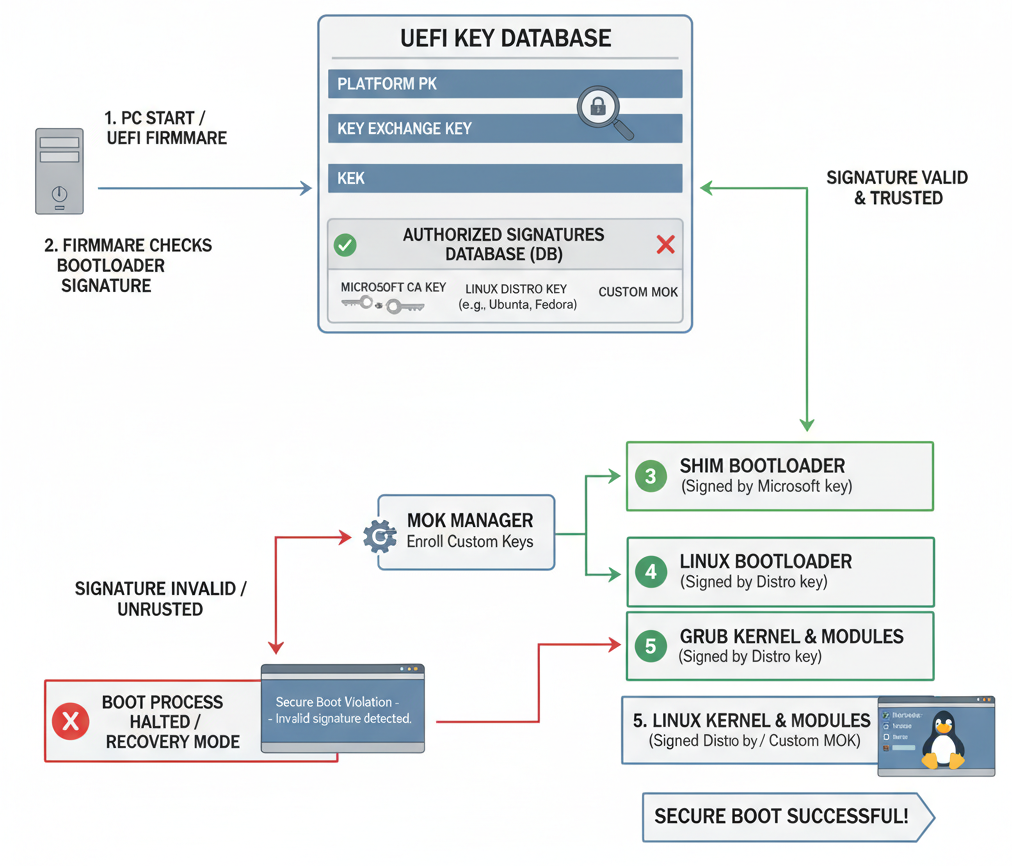
Meet the sched_ext Ecosystem
This article provides a deep dive into the major scheduler classes, their unique design goals, and the management utilities powering the system.
The CPU scheduler is the unsung hero of the Linux kernel. Its job is to answer three critical questions: which task, where, and for how long? For decades, general-purpose schedulers like CFS and EEVDF handled this, powering everything from phones to supercomputers. But with complex hardware and specialized software, the “one-size-fits-all” model began to crack. This tension set the stage for sched_ext.

A universal scheduler is a master of compromise, but compromise has its limits. Every decision involves trade-offs:
Why a single scheduler couldn’t optimize for everyone:
A single, universal algorithm cannot be optimal for every specific use case.
Why didn’t developers just write custom schedulers? Because changing the kernel’s scheduler was:
This led to:
Developers needed a way to experiment safely and deploy custom schedulers without having to convince the entire world their approach was the one true way.
In late 2022 (Linux 6.12), the vision became reality: extensible scheduling. sched_ext (Extensible Scheduler Class) is not another scheduler algorithm. It’s a framework that allows developers to write and deploy their own schedulers as BPF programs, which can be loaded directly into the kernel at runtime.
Why sched_ext is a Game-Changer:
Dynamic & Agile:
Safety First:
Focus on Policy, Not Mechanics:
This new model shifts Linux from a “one scheduler for all” philosophy to a platform for many schedulers, each perfectly tuned for its job.
sched_ext represents a paradigm shift. It democratizes scheduler development, makes experimentation safe, and finally bridges the gap between the kernel’s stability and the unique needs of modern workloads. This isn’t just another update—it’s the beginning of a new era of extensible, workload-aware scheduling in Linux.

This article provides a deep dive into the major scheduler classes, their unique design goals, and the management utilities powering the system.

sched_ext is not a scheduler; it’s a framework that securely connects custom BPF programs to the core kernel. Its architecture consists of four distinct layers that separate responsibilities cleanly.

For decades, general-purpose schedulers like CFS and EEVDF, powered everything from phones to supercomputers. But with complex hardware and specialized software, the “one-size-fits-all” scheduling model began to crack. This tension set the stage for sched_ext.

In this final installment of our series, we synthesize our exploration of diverse Linux boot processes by examining two critical, cross-platform themes: securing the chain of trust and ensuring system resiliency through atomic updates